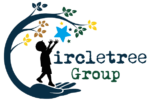The at Home & in Community Approach
From Wilsonville, down the I-5 corridor to Eugene, we meet you where you are! Working with families in their homes and communities ensures that best practices are implemented. We make sure that our goals are relevant to our client and their family by addressing potential barriers unique to each setting the individual will be in. Whether at home, in school, or out and about, we help build skills that empower the person wherever they are.

ABA That Works for Your Needs
We provide Applied Behavior Analysis (ABA) to children, adolescents, and adults to foster skill acquisition and reduce maladaptive behavior, with the ultimate goal of overall increased functionality and independence. We help clients learn to successfully navigate a world that’s not built to accommodate them, without betraying their nature.
Who Benefits?
Well, technically…anyone can benefit from ABA! Though traditionally used for individuals diagnosed with ASD, Down Syndrome, ADHD, and other developmental delays, ABA can and has been utilized in the treatment of a wide array of issues, including addictions.
Our Intake Process
Our intake process timelines vary depending on location, insurance, and staff availability,
and can take anywhere from a few weeks to a few months.


Our intake process starts once we make contact with interested individuals and decide that ABA therapy is right for them.

After this, we gather paperwork from clients or qualified caregivers. This includes a referral and documentation from the client’s Primary Care Physician.

Once we have the required paperwork, we will make a request to the insurance to complete an initial assessment.

Once we have approval from the insurance, we will complete the assessment and make another request for the units required to complete the suggested weekly schedule of services.
How It Begins: Assessments
ABA starts with an initial assessment of a person’s skill repertoire and behavioral needs. Though the assessment is composed of several sections, the overall assessment is typically called a Functional Behavior Assessment (FBA). During the FBA, we get to know you, whether you are the person being treated, a family member, or another caregiver. We not only spend time finding out about the specific individual being assessed and their needs, but also the needs of their family or other caregivers.
During assessments, we first gather information from you, then we determine solutions together.
Skill Acquisition
First, we gather:
Skills the individual is lacking, which skills are strengths, and which skills are top priority.
Then, we determine:
How best to teach these skills, based on our experience with behavior, and your experience as an individual with needs, a family member, or caregiver.
Behavior Reduction
First, we gather:
What negative behaviors the individual exhibits, as well as the most likely function–or purpose–of these behaviors.
Then, we determine:
The most appropriate methods to decrease the behavior. Once again, this is based on both our experience AND yours.

The Primary Components of ABA Treatment

1. Data Collection
Ongoing Assessment and Analysis

2. Behavior Reduction
Decreasing negative behaviors

3. Skill Acquisition
Increasing Positive Behaviors
Data Collection
Data-taking is vital to ensuring that both Treatment Plans and Behavior Intervention Plans remain detailed, comprehensive, and most importantly effective. We constantly take data on treatment targets, which means, when we do not see progress or are not meeting your goals, we change the treatment. Even when we do see progress, we also eventually change it in order to push the progress forward! This type of treatment fluidity allows us to keep up with you and your ongoing goals.

Behavior Reduction
For reducing negative behaviors such as aggression, self-injury, elopement (i.e., running away), tantruming, stereotypy, or any other behavior of concern, we create a Behavior Intervention Plan (BIP). This is where we determine both preventive and intervention strategies for each behavior based on their function and the history of the individual exhibiting the behavior.

Skill Acquisition
People are required to utilize so many skills in order function independently on a daily basis. From speaking to other people, listening to them, and understanding social cues, to keeping up hygiene by showering and brushing, to keeping track of time, schedules, and appointments, life is tricky. Utilizing ABA methods, we teach these skills that foster independence in everyday life.


Where Does Treatment Take Place?
At Circletree Group, we focus on treatment within homes, school, and community settings where those being served frequent. This allows us to involve family, educators, and other caregivers in treatment and growth, while also enabling those being served to generalize newly learned skills and behaviors across different places and situations.
Our practice currently covers the Willamette Valley – from Wilsonville down the I-5 corridor to Eugene.

Insurance (The Nitty Gritty)
Fortunately, because ABA has been proven so effective for treatment of behaviors in individuals with developmental delays, many insurance carrier plans cover most or all of ABA treatment. We continue to contract with the majority of insurance carriers. If you are covered by an insurance carrier with whom we are not credentialed, we can typically hammer out a single-case agreement with that carrier for specific clients.
